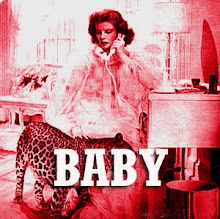
from Cathy Park Hong Dance Dance Revolution Norton 2007
"Now samsy, grab un gun. BB down de riving ravens,
de vermin fatted jays, y jade headed mallards who wit
insolence nest en botany o our #3 prize-winnim plants,
who dae nest en hearts o Russkies sculpt en shurbbery".
http://www.collegenews.org/x5808.xml
NEW YORK, N.Y., June 25, 2006 -- Barnard College recently announced that poet Adrienne Rich has chosen Cathy Park Hong and her work “Dance Dance Revolution” as the winner of the 2006 Barnard Women Poets Prize. The Prize, awarded jointly by Women Poets at Barnard and the publisher W.W. Norton & Company, includes publication of the work in April 2007 and a free public reading at Barnard.
The Work:
“Dance Dance Revolution” is a book-length sequence of poems spoken in two voices, as Rich describes: “The Guide is a former South Korean dissident from the Kwangju uprising of 1980 (comparable to Tiananmen Square, brutally repressed with the support of the U.S.). She speaks a fluid international language called Desert Creole, which draws, the poem tells us, from 600 emigré language groups including Caribbean patois, Asian ‘pidgin,’ Spanish, Latin, German and Middle English. She is interviewed by the Historian, a Korean-American scholar raised in Sierra Leone, who annotates the Guide’s commentaries in standard English. There is a personal connection between the two, which is gradually revealed. The interviews take place in a planned city called The Desert (reminiscent of Dubai or Las Vegas) where replicas of major world cities have been built as tourist resorts, offering every luxury. The Guide has ended up, after her release from political prison, as a tourist guide in the St. Petersburg Hotel. The time of the poem is 2010.”
Rich, one of America’s most distinguished poets and influential feminist theorists, praises Hong’s manuscript for “the mixture of imagination, language, and historical consciousness.” The Guide, she writes, “speaks as one of those migrant people the world over whose past has been ruptured or erased by political violence, who plays whatever role she must in the world of the global economy, using language as subversion and disguise.” Hong’s work, she adds, “is passionate, artful, worldly. It makes a reader feel and think simultaneously, and rather then implying a nihilistic or negative vision of the future, it leaves this reader, at least, revitalized.”
17.11.07
vermin fated jays
Labels: xxamples others
Subscribe to:
Post Comments (Atom)













No comments:
Post a Comment